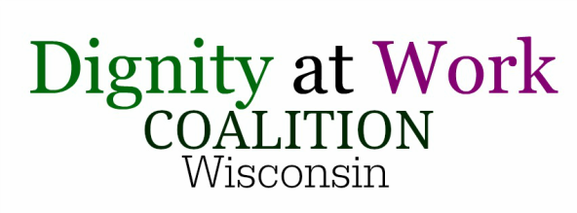Affordable Housing
|
The Issue
Affordable housing is a critical issue facing many Wisconsin residents. Families can struggle to meet their basic needs without affordable housing, and individuals can find themselves homeless or forced to live in substandard housing. In Wisconsin, housing costs have risen in recent years, making it increasingly difficult for low-income families to find affordable housing. In Wisconsin, the demand for affordable housing far exceeds the supply, resulting in high housing costs and long waiting lists for affordable housing units. In addition, many low-income families are forced to spend a significant portion of their income on housing, leaving little for other necessities. This has led to a rise in homelessness and a lack of stability for many families. |
What we can do:
How else we can help:
Affordable housing is a critical issue that impacts Wisconsin residents' health, education, and economic stability. By advocating for affordable housing and supporting nonprofit housing organizations, individuals can help address this critical issue and improve the lives of Wisconsin residents. By increasing funding for affordable housing, addressing zoning and land use policies, and providing housing assistance programs, Wisconsin can ensure that all residents have access to safe and affordable housing.
Resources:
On January 31, 2023, Wisconsin Faith Voices for Justice and the Wisconsin Council of Churches co-sponsored a Faith-Based Housing Summit in Dane County. Expert presentations from that Summit can be viewed here and the Power Point presentations can be accessed here.
Sources:
https://doa.wi.gov/DIR/Comp_Planning_housing_guide_2.pdf
https://www.wpr.org/wisconsins-housing-shortage-especially-challenging-marginalized-groups-homelessness
"Affordable Housing and Homelessness in Wisconsin" by the National Low Income Housing Coalition: https://nlihc.org/housing-needs-by-state/wisconsin
https://www.nolo.com/legal-encyclopedia/the-eviction-process-wisconsin-rules-landlords-property-managers.html
https://www.cbpp.org/research/housing/where-families-with-children-use-housing-vouchers
- Increase Funding for Affordable Housing:
- Wisconsin can increase funding for affordable housing programs, such as the Low-Income Housing Tax Credit program, to support the construction of new affordable housing units and the preservation of existing units.
- Address Zoning and Land Use Policies:
- Zoning and land use policies can restrict affordable housing development, particularly in high-income areas. Wisconsin can address these policies to promote affordable housing development in all communities.
- Zoning and land use policies have a significant impact on the availability of affordable housing, especially in high-income areas where these policies can restrict development. Wisconsin needs to look closely at its zoning laws and regulations to address this issue. For example, zoning for multiple-family units in areas currently zoned only for single-family homes can increase the supply of affordable housing. Additionally, changing regulations that require a certain amount of green space (area of grass, trees, or other vegetation set aside for recreational or aesthetic purposes within an urban or suburban environment.) can limit the number of units that can be built on a particular plot of land, which ultimately increases the cost of housing. By modifying zoning and land use policies, Wisconsin can promote affordable housing development in all communities, making it more accessible for those who need it.
- Provide Housing Assistance Programs:
Wisconsin can provide housing assistance programs, such as rental assistance and housing vouchers, to help low-income families afford to house.
How else we can help:
- Advocate for Affordable Housing:
- Individuals can advocate for affordable housing by contacting their legislators and urging them to support funding for affordable housing programs and policies that promote the development of affordable housing.
- Studies have shown that many landlords are hesitant to accept housing vouchers due to perceived administrative burdens, low payment rates, and concerns about tenants' ability to pay the rent portion not covered by the voucher. A study conducted by the Urban Institute found that only about 14% of landlords in the 50 largest metropolitan areas in the United States accepted housing vouchers. In addition, the study found that voucher holders faced significant discrimination when searching for housing, particularly in high-opportunity neighborhoods.
- Support Nonprofit Housing Organizations:
- Nonprofit housing organizations play a critical role in the development and management of affordable housing units. Individuals can support these organizations through donations and volunteer work.
- Nonprofit housing organizations play a critical role in the development and management of affordable housing units. Individuals can support these organizations through donations and volunteer work.
- Movin' Out Inc. - https://www.movin-out.org/
- Community Action, Inc. of Rock & Walworth Counties - https://community-action.org/
- Impact Seven, Inc. - https://impactseven.org/
- Wisconsin Partnership for Housing Development - https://www.wphd.org/
- Habitat for Humanity of Dane County - https://www.habitatdane.org/
- CommonBond Communities - https://commonbond.org/
Affordable housing is a critical issue that impacts Wisconsin residents' health, education, and economic stability. By advocating for affordable housing and supporting nonprofit housing organizations, individuals can help address this critical issue and improve the lives of Wisconsin residents. By increasing funding for affordable housing, addressing zoning and land use policies, and providing housing assistance programs, Wisconsin can ensure that all residents have access to safe and affordable housing.
Resources:
On January 31, 2023, Wisconsin Faith Voices for Justice and the Wisconsin Council of Churches co-sponsored a Faith-Based Housing Summit in Dane County. Expert presentations from that Summit can be viewed here and the Power Point presentations can be accessed here.
Sources:
https://doa.wi.gov/DIR/Comp_Planning_housing_guide_2.pdf
https://www.wpr.org/wisconsins-housing-shortage-especially-challenging-marginalized-groups-homelessness
"Affordable Housing and Homelessness in Wisconsin" by the National Low Income Housing Coalition: https://nlihc.org/housing-needs-by-state/wisconsin
https://www.nolo.com/legal-encyclopedia/the-eviction-process-wisconsin-rules-landlords-property-managers.html
https://www.cbpp.org/research/housing/where-families-with-children-use-housing-vouchers

